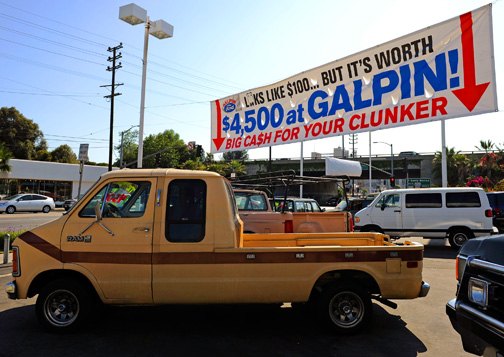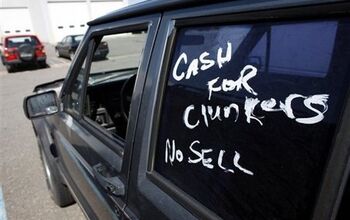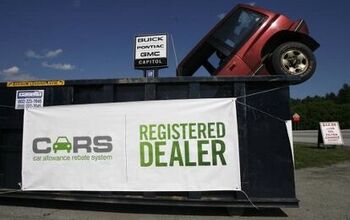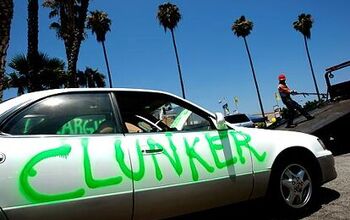Dealers Call Out Cash for Clunkers
Would you believe that two-thirds of all car dealers are still waiting for their first clunker check? Could you imagine that only three percent of all clunker deals have been been blessed by NHTSA? Automotive News [sub] has the survey for you! The only problem is that AN admits the poll was unscientific. Plus, it was an online poll. Still, the headline looks good beneath a headline in which NADA admonishes that dealers are “at risk” in making further clunker deals. And NADA’s internal surveys show that all the clunker money is already gone, reinforcing the apocalyptic tone of the AN survey.
“It is important to note that NHTSA has confirmed elsewhere that if the program’s money runs out before a dealer is reimbursed, that dealer will not be paid,” NADA warns. “Dealers who accept additional ‘clunker’ deals face a growing risk that they may not be reimbursed.” The implication is that the NHTSA is so completely out to lunch that it’s putting dealers at risk. Meanwhile, NHTSA is blaming the high rejection rate on dealers’ inability to fill out forms properly. And if rejection rates stay high, dealers won’t have to worry (as much) about the money running out. Of course the possibility that the money is almost gone could also bring in the stragglers, hoping to get in on the clunker deal at the last minute. Unless NHTSA comes up with a wind-down strategy fast, overspending is a real possibility. You have to know that some entrepreneurial lawyers somewhere are getting ready to have a field day with the CARS program.
More by Edward Niedermeyer


































Comments
Join the conversation
This program has amounted to a administrative nightmare for auto dealers. Not to mention a severe blow to cash flow with the tremendous delay in funding. And you want the Gov involved in healthcare?
Bearadise. You are right, I would want my money. But your example is not an accurate comparison. My employer would have the time sheets and he would know that I have done the work. We know each other well. Doing business with the public at random in a society as corrupt as the one we live in now, no one would deliver a product or pay for anything unless every T is crossed and every I is dotted and verified three times over. Every one knows odds are that a random unknown counter party is most likely pulling something. This is not the country we used to live in, where the overwhelming % of people proceeded in good faith even when dealing with strangers.
I can hardly wait for the dealers to scream that the program needs to be brought back now that we know it will be over this coming Monday. Cue dealer whining on 3, 2, 1 .....
Ruckover said it well. NHTSA had roughly a month to research (e.g., what engine-killing chemical would EPA and recyclers agree with?), develop and implement a rather large-scale program. A more automated process may have been considered, but in my experience when you ask IT for a system you're told "we'll get back to you in six months." I think the importance of verifying a claim demanded a "paper trail" of supporting documents. From dwford's comment, I gather the "paper" is an e-mailed electronic image, which serves the purpose. And I can understand why lawyers like paper. In archives, courthouses, museums, etc., there are records and books that go back many hundreds of years yet are still readable. I found a will written 200 years ago by an ancestor, and the text and signature was as clear as the day the paper was written upon. In contrast, an archivist told me his institution was stymied by forty-year old Dictaphone belts and thirty-year old computer tapes in obsolete data formats.